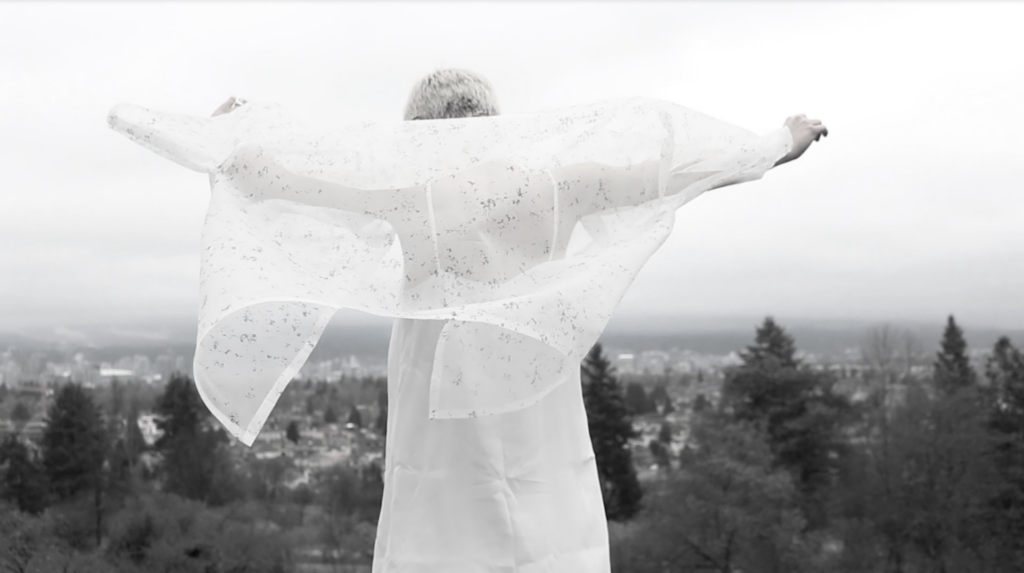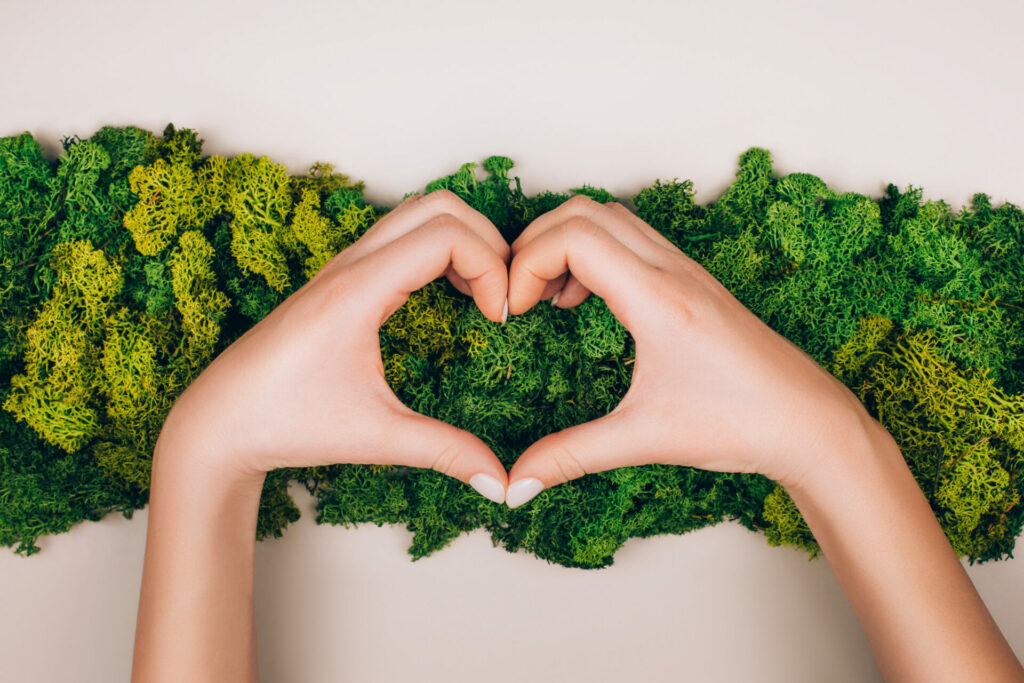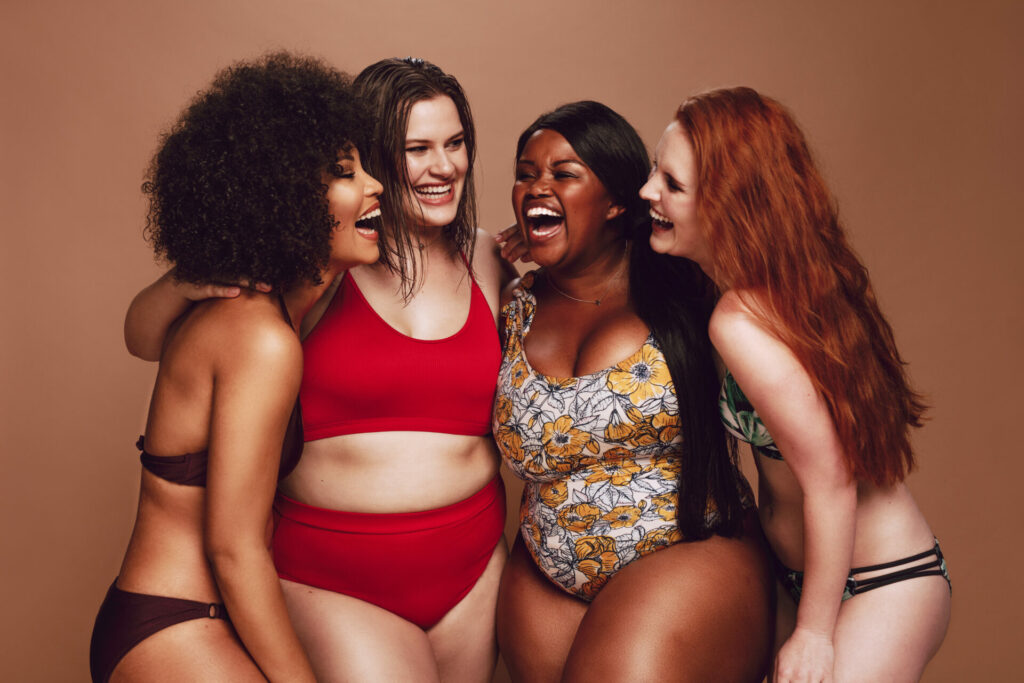The UAE’s shopping culture is dominated by big malls, widespread love for designer labels and, for those on a tighter budget, the temptations of fast fashion retailers. But when it comes to sustainability, the impact of the fashion industry on the planet is immense.
The data should make all of us take a more considered, less disposable approach to shopping for clothes. According to the European Environment Agency, textile production in 2020 required on average 400m2 of land, 9m3 of water and 391 kg of raw materials for every person living in the EU, causing a per capita carbon footprint of 270 kg.
On a global level, the World Resources Institute used Sustainable Apparel Coalition and Textile Exchange data to estimate in 2021 that if textile industry carbon emissions go unchecked, they will rise to 1.588 gigatons by 2030. To put this into perspective, 1.588 gigatons of CO₂ emissions would surpass the annual emissions of major industrialised countries like Germany (0.7 gigatons) and Japan (1.1 gigatons)
While the apparel industry as a whole needs to take serious steps towards using land and water more responsibly and reducing emissions during the manufacturing and transportation processes, there are steps we can all take to buy clothes more responsibly and move away from fast fashion.
Learn to love pre-loved
Secondhand clothes shopping does not have to mean only wearing dated garments – and it certainly shouldn’t mean dirty clothes either. Across the world, pre-loved fashion has had an image makeover with stereotypes of smelly, style-free clothes becoming a thing of the past.
In the UAE, the pre-loved fashion market has grown in recent years, incorporating high-end brands, amazing vintage pieces and great options for every occasion. Phillipa Howarth from Reems Closet, a luxury fashion consignment store in Dubai, is passionate about preloved fashion, saying it’s ‘not just a fad, it’s a conscious choice that promotes creativity, sustainability and ethical consumption.’
‘By choosing to shop preloved items, one is helping to reduce textile waste by extending the life cycle of fashion items that might otherwise be discarded in landfills – now, what’s not to love about that?’, she says.
When it comes to buying pre-loved designer clothes and accessories, Phillipa has a few tips. First, she advises buying from reputable, licensed stores if you’re serious about authenticity – and to shop in store if you can.
‘The choice is yours, but if you can, make the time to visit the consignment store,’ says Phillipa. ‘There’s nothing quite like trying and seeing a preloved item in person.’
You can even find true investment pieces, if you shop smartly, accordion to Phillipa: ‘Keep an eye out for that unique piece – be it a Hermes Birkin bag or Cartier Juste un Clou bracelet, consignment stores are a fantastic place to find an investment piece at a discounted price.’

Her top insider tip is to request original paperwork and receipts because this increases the item’s value.
Nicole Domingo, coordinator of Fashion Rerun, a Dubai-based vintage clothing store with a physical and online retail presence is another strong advocate of circular fashion.
‘Circular fashion has been one of sustainability’s strongest pillars because it addresses many negative aspects of the fashion industry and gives solutions to each one, like the overproduction of garments and environmental pollution,’ Nicole explains. ‘It allows everyone to be mindful of their consumption, giving everyone a chance to do their part in alleviating the damage done by the fashion industry to the planet.’
She is proud to be part of the reinvention of the image of pre-loved fashion, advising any sustainability sceptics to ‘let go of any stigmas and superstitions connected to secondhand clothes.’
When it comes to browsing, Nicole advises shoppers to stick to their style or look for specific items, to prevent getting overwhelmed, as well as setting aside enough time to browse because ‘going through so many options is a task-and-a-half.’
Thrifting vs vintage
Kirsty Campbell is founder and brand director of Urban Market Concept (UMC), which offers an online shop for pre-loved fashion, as well as hosting events where vendors can set up stalls to sell secondhand clothes to new owners. The next big event will be the three-day Urban Market Concept Festival in Abu Dhabi from 8 November.
‘I think that we can all agree that giving any item of fashion a second chance is more sustainable than constantly buying from fast fashion chains,’ says Kirsty. ‘I love the quote, ‘One man’s trash is another man’s treasure’, which promotes the idea that the value of an item is subjective – what one person may perceive as worthless another person will view as treasure.’
She points out that there is a difference between curated vintage items and thrifting: ‘I think the easiest way to explain it is that vintage items are usually more sought-after limited edition pieces, whereas thrifting is similar to the concept of a car boot sale or charity store, where people are giving their own wardrobes a chance a second life.’
‘This usually means that there is a substantial price difference between vintage and thrifted items, which can be confusing for people,’ Kirsty continues. ‘I think it’s important to always ask the seller if they’re a vintage creator or a thrift concept to avoid being shocked by price tags!’
Be a sew-and-sew
As well as being aware of the difference in price between vintage, pre-loved designer and thrifted fashion, Kirsty says that sustainable shoppers need to be aware that sometimes the items might not presented as if they are in a store: ‘I think that is part of the charm, but requires you to have some patience.’

‘I think the rise in reworking a fashion concept, where old items are re-styled into new pieces, is extremely popular and it allows for old items to be turned into something trendy and new, while still remaining extremely sustainable,’ she says.
This is where Theresa Tsui, a social impact specialist and co-founder of Skills 3, steps in. She shares her craft and sewing skills with people in the UAE, so more people can enjoy the sustainability benefits of mending and repurposing clothes.
‘Sewing skills enable people to repair and upcycle clothes, extending their lifespan and reducing the need to discard garments as well as the demand for new clothing production, which is resource-intensive, wasteful and a major environmental issue,’ she explains.
If you’re sewing new garments, Theresa advises choosing ‘sustainable, organic fabrics and materials, supporting ethical supply chains that prioritise environmentally friendly practices.’
For transforming existing clothes, Theresa says there is so much you can do with ‘just your imagination and flair.’ Embellishments, such as patches, embroidery, trimmings, buttons and beads can refresh a look. Or you can try tailoring, with Theresa suggesting altering the fit, cropping tops, hemming trousers, turning dresses into tops, and jeans into shorts or bags to keep up with trends, rather than buying new.
If threading a needle is enough to reduce you to tears, Theresa’s new-sew tips include dyeing or bleaching clothes for new colours or patterns, such as tie-dyeing techniques, as well as fraying, ripping or distressing denim to add a fashionable edge.
However, Theresa says that it’s easier than ever to learn to sew in the UAE, with ‘a burgeoning number of sewing centres offering myriad sewing classes, which should suit everybody from six years old and upwards.’ She recommends ThreadWerk in Jumeirah Lakes Towers, Classic Quilts Dubai, The Sewing House in Dubai’s Darwasl Mall, Craftland, which holds workshops in Jumeirah, and Vine Communities Center for Sustainable Development in Abu Dhabi.










